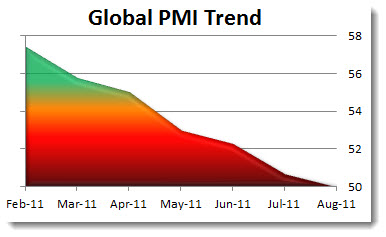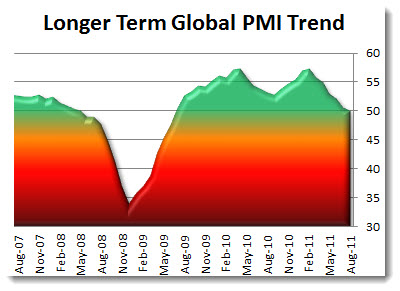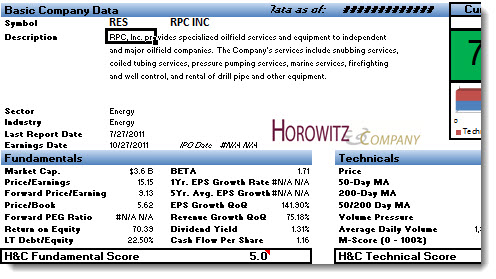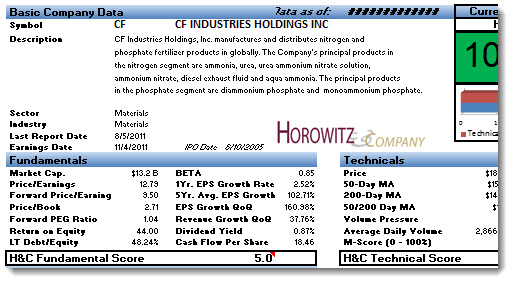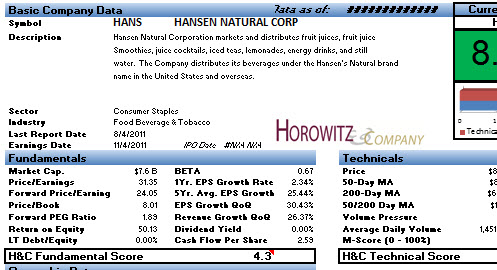During the month of September, we are going to be adding a special section to this site.
The TDI Managed Growth Strategy provides a private “client-only” blog where we discuss the day and our general outlook. Areas that we cover range from current holdings analysis, economic reports, political commentary and more.
The primary purpose of the “client-only” blog is provide information so that clients for whom we manage money will have a better understanding of what is the rationale for portfolio decisions. In addition, the information is designed to be educational so that readers can learn from both our mistakes and successes.
On a daily basis, simply follow www.thedisciplinedinvestor.com or use an RSS reader and point it to : http://tinyurl.com/3u3jahy or http://www.thedisciplinedinvestor.com/blog/category/stocks/insideedition/feed/
___
Latest Podcast Episode: TDI Podcast 228: Curzio Brings Clarity To The Confusion (#228)
Guest(s): Frank Curzio
___
2011-09-07
Just in case there was any thought that the Greek banking drama is almost over, the yields are telling a much different story. As the CDS rates continue to rise, so do the short term rates that Greece has to pay for borrowing money.
At these rates, Greece should theoretically default within days or weeks. There is no way that the country will be able to pay the amounts needed to fund their borrowing needs if their debt is sold to the public. Fortunately there has been the ECB and the IMF that have picked up where investors are leaving off. Unfortunately, both have made it clear that they will not hand over additional funds if Greece is unable to meet their deficit reduction schedule.
Investors are pricing the 2-year bond close to 52% – at this level the signal of an imminent default is nearing.
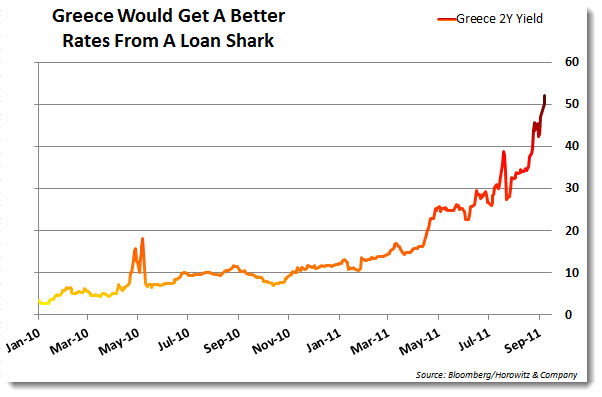
If that were not enough, the shorter 1-year bond now has a yield priced in at over 88%. While it is not the normal sequence to see the shorter maturity bond have a higher interest rate, this is what occurs when the buyers/holders of the debt that is closest in time to maturing worry about the potential for the repayment of their principal.
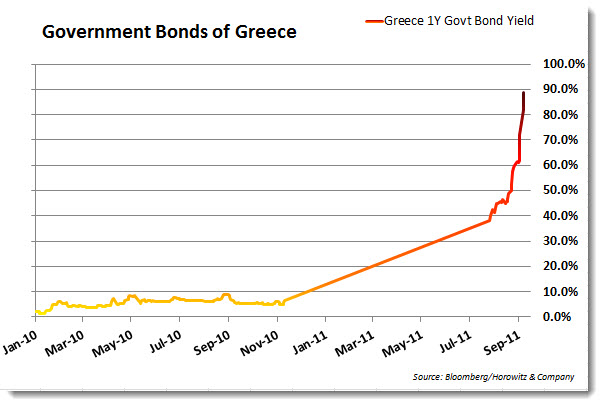
The monumental task that Greece has in calling for growth killing austerity is not helping. Since they still have over ‚¬11 billion of interest payments due next year, they will need to ramp up tax collections and trim spending in order to meet their commitments to the bond holders. The likelihood of accomplishing that monumental feat is low.
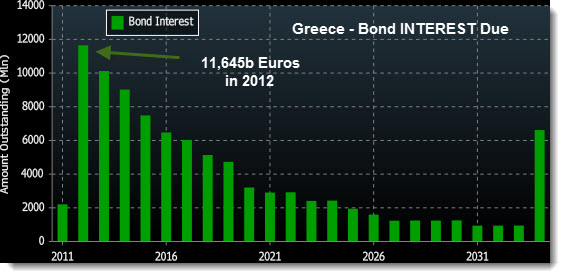
Beyond the interest payments, over the next two years, ‚¬57 billion of principal payments will come due. Greece will then need to re-issue the debt in order to provide the funding for the ongoing financing of the countries activities. At the current levels of interest that the public markets are looking for, they will have no choice but to turn to the ECB and IMF.
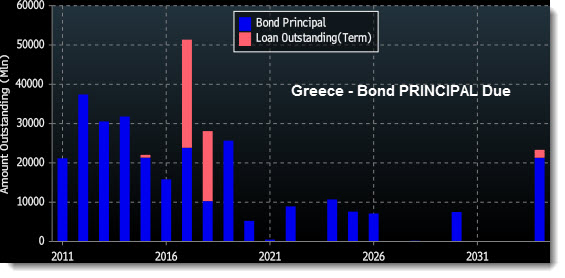
As mentioned yesterday, this is a big week for EuroZone economic reports. For the most part, the past two days has been shown that the region is contracting, as expected.
From Briefing.com:
German orders fell more than expected in July, but the details were better than expected. Total orders dropped 2.8%m/m, leaving the July level 4.5% annualized below the 2Q11 average. This was entirely due to the other transport equipment category however, which contains many of the bulky orders of aircraft and trains. Such bulk orders have been very strong of late and we are now getting payback.
Excluding the 40%m/m decline in this category, orders were effectively flat in July, which is good considering that they rose 3.6%m/m in June. Similarly, excluding other transport equipment, the July level of orders is 7.1% annualized above the 2Q11 average, after having stagnated during 2Q11. This hints at an underlying trend that is a bit more positive than we thought, although the August business surveys suggest that further slowing is on its way.
JP Morgan‘s all-industry PMI output index (a value added-weighted aggregate of the manufacturing and service- sector PMI output indexes) declined 1 point to 51.5 in August, the lowest level in two years. The latest reading is consistent with global GDP growth of about 1.5% annualized, which is significantly below JP Morgan’s current-quarter forecast, which calls for 2.4% growth.
Overall, the JP Morgan Global PMI Index was also at its lowest point in two years. This is consistent with the slowdown that has been seen over the past few month.
The good news is that the PMI has not “fallen off a cliff” as was the case back in 2008. So far, the decline has been orderly. This is not yet signalling a level that is consistent with a recession. For now, it is a run-of-the-mill slowdown that is based on consumers backing off as they have a high level of concern about the global economic landscape.
___
Looking to invest in The Disciplined Investor Managed Growth Strategy?
Click HERE for the virtual tour….
___
There will be some important news that will be parsed today as the constitutional vote in Germany……
Below are the Horowitz & Company “OneSheets” on the equity positions that are currently held. As the environment is not conducive for a large directional bet on either the long or short side, there are only three core holdings as of now (aside from two ETF positions).
(Click on each to download PDF)


